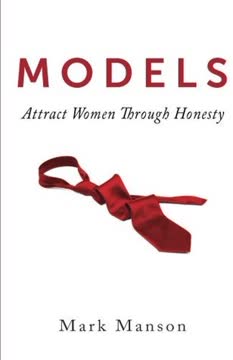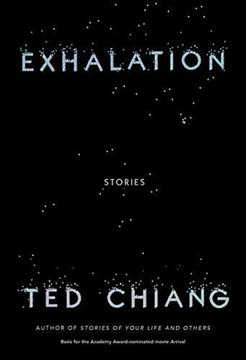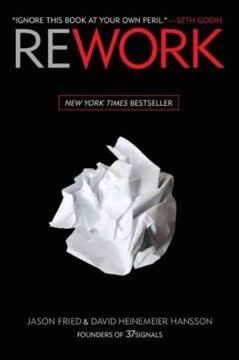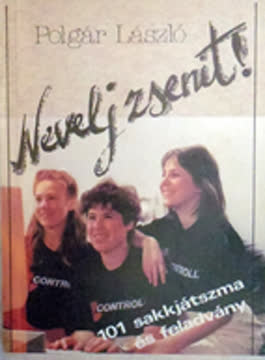Key Takeaways
1. Genius is Made, Not Born: Education is Paramount
To express it provocatively, I often say, “Genius is not born, genius is raised.”
Education shapes destiny. The core of Polgar's philosophy is that genius is not primarily a result of innate biological gifts, but rather the product of intensive, focused education and environmental influence. He argues that every healthy child is born with sufficient potential to become outstanding in some field. This potential must be actively developed through nurture.
Social product. A person's capabilities and way of life are not predetermined at birth but are largely shaped by their social environment and upbringing. Polgar's experiment with his daughters aimed to prove that deliberate pedagogical methods could cultivate genius, demonstrating that human potential is highly malleable.
Optimistic view. This perspective leads to pedagogical optimism, suggesting that educators and parents have a profound ability to influence a child's intellectual development. It shifts the focus from identifying pre-existing talent to actively creating it through structured learning and dedicated effort from an early age.
2. Early, Intensive Specialization is the Path
In my opinion, early childhood, that is, the period between 3 and 6 years, the preschool years, are more important and principally much more in need of utilization than thought of in the current specialist literature that realizes practice.
Maximize early potential. Polgar emphasizes the critical importance of early childhood (ages 3-6) for learning and specialization, arguing that the brain is most elastic and capable of rapid development during this period. Starting intensive instruction early allows children to assimilate knowledge and skills more effortlessly, like a serious game.
Focused effort. Instead of trying to uncover hidden innate talents, parents should choose a specific field and direct the child's development intensively in that direction from a young age. This focused approach, dedicating significant daily hours to the chosen area, allows the child to build deep expertise and achieve high levels of competence rapidly.
Meaningful engagement. Early specialization provides children with a clear goal and sense of purpose in their learning, making the process enjoyable and motivating. Seeing tangible progress, like mastering a foreign language or reaching a certain level in chess, provides a sense of accomplishment that traditional, broad education often lacks.
3. The Family is the Foundation of Genius Education
without a good family background and loving family relationships my daughters’ successes would never have happened.
Central role of family. Polgar views the family as the primary and most influential unit for education, arguing that its role should be strengthened rather than fully delegated to schools. A stable, loving family environment is essential for a child's emotional security and provides the necessary support structure for intensive learning.
Parental dedication. Parents must be deeply involved, acting as the child's first teachers, models, and managers. This requires significant time, effort, and often personal sacrifice, as demonstrated by the Polgars dedicating their lives to their daughters' education.
Communal effort. The family functions as a collaborative team, with parents and children working together towards a shared goal. This intimate relationship allows for personalized instruction, constant support, and the formation of strong bonds, fostering both intellectual and emotional development.
4. Traditional Schools Hinder Talent Development
Contemporary schools are separate from real life in that they function sort of as laboratories.
Critique of the system. Polgar is highly critical of traditional schooling, arguing that it fails to educate for real life, equalizes students to a low average level, and often stifles the development of talented children. The standardized curriculum and large class sizes make it difficult to cater to individual needs and potentials.
Tedious and uninspiring. School instruction is often tedious for gifted children because the pace and material are geared towards the majority. This lack of challenge can lead to boredom, decreased motivation, and even psychological issues, as talented children are often not tolerated or understood by their peers or teachers.
Lack of personalization. The factory-like structure of schools prevents the intensive, personalized contact between educator and child that Polgar deems essential for cultivating genius. Children become "marionettes" in a system that prioritizes conformity over individual growth and creative independence.
5. Chess: A Multifaceted Tool for Intellectual Growth
The secret of chess lies in its complexity.
More than a game. Polgar chose chess as the vehicle for his experiment because it is a complex activity encompassing science, art, sport, and psychology. This multifaceted nature makes it an ideal tool for developing a wide range of intellectual capabilities applicable to other fields.
Measurable progress. Chess provides an objective and precise system of evaluation (like Elo ratings and competition results), allowing for clear measurement of progress and success. This was crucial for proving the effectiveness of his pedagogical method against skepticism.
Versatile development. Intensive chess training develops critical skills such as:
- Logical thinking and problem-solving
- Memory and spatial visualization
- Persistence and concentration
- Strategic planning and tactical calculation
- Adaptability and creativity
These skills are transferable, ensuring that specialization in chess does not limit a child's future options.
6. Psychology is Crucial for Peak Performance
Competitive chess playing demands a specific state of mind, whose conscious influence - and theoretical foundation - can contribute to a successful competition.
Mental preparation. Success in high-level competition, including chess, requires a specific psychological state. Understanding and consciously influencing one's own mental state, including managing emotions, maintaining concentration, and developing resilience, is vital for optimal performance.
Self-knowledge and strategy. Psychology helps players understand their own strengths and weaknesses, guiding their self-improvement efforts. It also aids in analyzing opponents' psychological profiles to tailor strategies that exploit their vulnerabilities or counter their typical approaches.
Personality development. Competitive activity, when approached with psychological awareness, contributes to the development of important personality traits:
- Willpower and self-control
- Competitiveness and drive to win
- Ability to handle pressure and setbacks
- Realistic self-assessment and self-correction
Polgar emphasizes integrating psychological training into the overall educational process.
7. Women's Intellectual Potential Equals Men's
I do not claim that men and women are equal in current society, but that indeed the cause of this inequality is not biological but social.
Challenging discrimination. A key, albeit initially incidental, goal of Polgar's experiment became proving the intellectual equality of men and women, specifically in fields like chess traditionally dominated by men. He argues that observed differences in achievement are due to social conditioning and discrimination, not inherent biological limitations.
Social roles limit potential. Girls are often steered away from intensive intellectual pursuits or prepared for traditional roles that limit their opportunities for specialized development. Polgar contends that if women are given the same conditions, expectations, and intensive training as men, they can achieve comparable results.
Fighting for equal opportunity. Polgar advocates for ending segregated competitions in intellectual fields like chess, arguing that forcing women to compete only among themselves perpetuates a lower standard and hinders their development. His daughters' success in "men's" tournaments serves as practical proof of this potential equality.
8. Happiness is the Ultimate Goal
A person is happy if they have work and are able to love.
Happiness as a formula. Polgar defines happiness as a complex state resulting from the combination of work, love, freedom, and luck. He believes that genius education, by fostering deep engagement in meaningful work and cultivating personal autonomy, provides the most certain path to achieving this state.
Joy in creation. Finding enjoyment and satisfaction in one's work is a fundamental component of happiness. Intensive specialization allows children to master a field, experience success, and engage in creative activity, which Polgar sees as inherently joyful.
Balanced life. While emphasizing work and achievement, Polgar also stresses the importance of love (family, friends, relationships) and freedom (autonomy, self-realization) for overall happiness. His goal was to raise not just brilliant individuals, but well-rounded, happy people with rich internal lives and strong social connections.
9. Minority Status Can Fuel Achievement
Learn, my son, because (1) only thus can you succeed in life, and (2) if you must flee, no one can take knowledge away from you, so you can take it with you anywhere.
Historical context. Polgar draws on the historical experience of the Jewish people to illustrate how minority status and frequent persecution can paradoxically drive intellectual achievement. The emphasis on education and portable knowledge became a survival strategy, fostering a culture of learning and resilience.
Adaptability and drive. Being on the periphery creates stress and a need to be "doubly capable" to succeed. This situation cultivates adaptability, problem-solving skills, and a strong ambition for accomplishment, traits that contribute to outstanding performance in intellectual fields.
Social determination. Polgar uses the high proportion of Jews among Nobel laureates and chess champions as evidence not for genetic superiority, but for the powerful influence of social "heredity" – cultural traditions, family values, and historical circumstances – in shaping intellectual outcomes.
10. Consistent, Disciplined Work is the True Talent
Genius is 1% inspiration and 99% perspiration.
Effort over innate ability. Polgar aligns with figures like Edison and Bach, who emphasized hard work and diligence as the primary drivers of achievement, rather than mystical innate talent. He believes that consistent, disciplined labor is the key to unlocking potential and achieving mastery.
Discipline from within. True discipline is not blind obedience but a rational, self-directed commitment stemming from interest and love for the activity. By making learning enjoyable and goal-oriented, children develop the internal motivation needed for sustained effort.
Intensive practice. Achieving genius-level results requires a significant workload and deliberate practice over many years. Polgar's daughters dedicated 5-6 hours daily to chess from a young age, demonstrating that consistent, focused effort is non-negotiable for reaching the highest levels.
11. The Pedagogue's Role is Dedicated Guidance
In genius education it is necessary that the pedagogue (whether the parents or professional teachers or tutors) stay in direct, constant and intensive contact with the child.
Intimate collaboration. Cultivating genius requires a close, continuous, and intensive working relationship between the educator and the child. This is not a hierarchical relationship but a collaborative one where the child is an active participant in their own development.
Guide and support. The pedagogue's role is to guide the child, provide resources, organize their learning, and offer constant support and encouragement. They must tailor the instruction to the child's level and interests, ensuring a positive and motivating learning experience.
Beyond academics. The pedagogue is also responsible for the child's holistic development, fostering emotional intelligence, moral values, and a healthy personality alongside specialized skills. This requires conscious effort and a planned program for character formation.
12. Challenge Conventions and Fight for Your Vision
The truth is very often persecuted, but never suppressed.
Facing opposition. Pursuing a non-traditional path like genius education inevitably leads to skepticism, criticism, and active opposition from conventional institutions and individuals. Polgar and his family faced significant resistance from educational authorities, chess organizations, and even the press.
Persistence is key. Despite attacks, slander, and bureaucratic hurdles, Polgar remained persistent and consistent in his vision. He believes that one must strive for the summit despite obstacles, obeying the principle of steering the ship as necessary even in a great storm.
Proving through results. The most effective way to counter opposition is through tangible results. The Polgar sisters' extraordinary achievements in chess served as undeniable proof of the validity of their father's unconventional pedagogical methods, eventually earning international recognition and challenging established norms.
Last updated:
FAQ
1. What is "Bring Up Genius!" by László Polgár about?
- Polgár’s Educational Experiment: The book details László Polgár’s radical educational experiment to raise his three daughters—Zsuzsa, Zsofia, and Judit—to be chess geniuses, based on the belief that genius can be nurtured through early, intensive, and specialized education.
- Pedagogical Philosophy: It presents Polgár’s philosophy that every healthy child is a potential genius, and that with the right environment, methods, and motivation, exceptional achievement is possible.
- Family-Centric Approach: The narrative is both a personal family story and a theoretical treatise, blending anecdotes, interviews, and educational theory.
- Challenging Conventional Wisdom: The book challenges traditional views on talent, heredity, and the role of schools, advocating for deliberate, parent-led education over standard schooling.
2. Why should I read "Bring Up Genius!" by László Polgár?
- Unique Educational Insights: The book offers a rare, firsthand account of a successful, unconventional approach to raising high-achieving children, with practical advice and philosophical reflections.
- Debate on Nature vs. Nurture: It provides a compelling argument in the ongoing debate about whether genius is born or made, supported by the real-life success of the Polgár sisters.
- Inspiration for Parents and Educators: Readers interested in child development, education reform, or parenting will find actionable ideas and inspiration.
- Broader Social Implications: The book discusses the societal value of nurturing talent and the responsibilities of both parents and society in developing children’s potential.
3. What are the key takeaways from "Bring Up Genius!" by László Polgár?
- Genius is Made, Not Born: Polgár asserts that with early, focused, and loving education, any healthy child can achieve exceptional results in a chosen field.
- Early Specialization is Crucial: The book emphasizes the importance of starting specialized education as early as possible, ideally before age 6.
- Role of Family and Environment: A supportive, loving, and intellectually stimulating family environment is essential for nurturing talent.
- Happiness and Achievement: Polgár argues that striving for excellence and achievement, when done with care and respect for the child’s well-being, leads to greater happiness and fulfillment.
4. How does László Polgár define "genius" in "Bring Up Genius!"?
- Democratic and Attainable: Polgár defines genius as an attainable state for any healthy child, not an exclusive or mystical trait reserved for a select few.
- Potential vs. Realized Genius: He distinguishes between potential genius (innate in every child) and realized genius (actualized through education and environment).
- Socially Useful Excellence: Genius, for Polgár, is not just about extraordinary ability, but about achieving socially valuable, original, and creative results in any field.
- Not Linked to Insanity or Elitism: He rejects the notion that geniuses are eccentric or mentally unstable, and insists that genius should be a source of pride, not shame.
5. What is the core method or educational philosophy advocated in "Bring Up Genius!" by László Polgár?
- Early, Intensive Specialization: Polgár advocates choosing a field (such as chess, music, or languages) early—by age 3 or 4—and dedicating several hours daily to focused, enjoyable study.
- Interest-Driven Learning: The method centers on awakening and sustaining the child’s interest, ensuring that learning is enjoyable and success is frequent.
- Active Parental Involvement: Parents are expected to be deeply involved as educators, motivators, and role models, often bypassing traditional schools in favor of home-based, individualized instruction.
- Holistic Development: While specializing, the approach also emphasizes moral, emotional, and social development, aiming to raise not just high achievers but happy, well-rounded individuals.
6. How did the Polgár family apply this method in practice, especially regarding chess?
- Home-Based Education: The Polgár sisters were educated at home as private students, with their parents designing and supervising their curriculum.
- Chess as a Chosen Field: Chess was selected for its measurable results, objectivity, and the opportunity to challenge gender stereotypes.
- Structured, Playful Learning: The girls’ chess education began with playful, age-appropriate activities, gradually increasing in complexity and intensity.
- Comprehensive Support: The family built a vast chess library, used databases, and sought out strong training partners, while also ensuring the girls learned multiple languages and engaged in physical activity.
7. What are László Polgár’s criticisms of traditional schooling, as discussed in "Bring Up Genius!"?
- Lack of Individualization: Polgár argues that schools teach to the average, neglecting both the most talented and those who need extra help.
- Suppression of Talent: He believes schools often stifle creativity and fail to nurture exceptional abilities, sometimes even causing psychological harm to gifted children.
- Disconnection from Real Life: Traditional schools are seen as detached from practical life, failing to inspire a love of learning or prepare students for real-world challenges.
- Resistance to Innovation: Polgár criticizes the rigidity and lack of pluralism in educational systems, which resist alternative methods and parental involvement.
8. How does "Bring Up Genius!" address the debate between heredity and environment in the development of talent?
- Three-Factor Model: Polgár proposes that personality and ability result from the interplay of heredity (biological endowment), environment (family and society), and individual effort.
- Primacy of Environment: He places the greatest emphasis on environment and education, arguing that socialization and upbringing are decisive.
- Research and Examples: The book references studies and historical examples supporting the view that early, focused training is key to exceptional achievement.
- Skepticism Toward Genetic Determinism: Polgár challenges the idea that genius is predetermined by genetics, instead advocating for pedagogical optimism.
9. What role does happiness play in László Polgár’s educational system in "Bring Up Genius!"?
- Happiness as a Goal: Polgár sees happiness as both a goal and a byproduct of striving for excellence and self-realization.
- Work, Love, and Freedom: He defines happiness as a combination of meaningful work, love, freedom, and luck, and believes that achievement and fulfillment are closely linked.
- Child-Centered Approach: The system prioritizes the child’s well-being, ensuring that learning is enjoyable and that the child’s autonomy and interests are respected.
- Empirical Evidence: Polgár points to his daughters’ joyful, balanced lives as evidence that intensive education, when done right, enhances rather than diminishes happiness.
10. How does "Bring Up Genius!" by László Polgár address the issue of gender and the emancipation of women, especially in chess?
- Challenging Gender Stereotypes: The Polgár experiment aimed to prove that girls can achieve at the highest levels in fields traditionally dominated by men, such as chess.
- Equal Opportunities: Polgár insists that, given the same psychological and educational conditions, women can match men’s achievements.
- Critique of Discrimination: The book documents the obstacles and discrimination the sisters faced, and argues for the abolition of separate women’s competitions in intellectual fields.
- Broader Message: The success of the Polgár sisters is presented as evidence against biological determinism and for the potential of all individuals, regardless of gender.
11. What are some of the most notable results and achievements of the Polgár sisters as described in "Bring Up Genius!"?
- World-Class Chess Success: All three sisters became world-class chess players, with Judit Polgár reaching the top 10 in the men’s world rankings and becoming the youngest grandmaster at the time.
- Olympic and World Titles: The sisters collectively won 15 Olympic gold medals and multiple world championships in various chess formats.
- Breaking Gender Barriers: Zsuzsa (Susan) was the first woman to earn the men’s grandmaster title by fulfilling the same standards as men.
- Recognition and Records: The sisters set numerous Guinness World Records, won Oscar prizes, and were widely recognized for their achievements in both women’s and men’s competitions.
12. What are the best quotes from "Bring Up Genius!" by László Polgár and what do they mean?
- "Genius is not born, genius is raised." – This encapsulates Polgár’s core belief that exceptional ability is the result of education and environment, not innate talent.
- "Every child born healthy is potentially a genius, and if one pays enough attention, they will in fact become one." – Emphasizes the universality of potential and the responsibility of parents and society.
- "Happiness = Labor + Luck + Love + Freedom." – Polgár’s formula for happiness, highlighting the importance of meaningful work, relationships, autonomy, and fortune.
- "I do not give a prescription, only a way of life, and I wish to persuade no one to raise geniuses. I merely wish to show that it is possible." – Reflects the book’s intent: to inspire and inform, not dictate or prescribe a single path.
- "The task and duty of pedagogical work is to lead people in this direction. On the other hand it is the right of every genius to consider themself as such without shame." –
Review Summary
Bring Up Genius! receives mostly positive reviews, with readers praising its insights on raising gifted children. Many appreciate Polgár's focus on making learning enjoyable and his emphasis on early specialization. Some criticize the interview format and lack of detailed instructions. Readers value the discussion on educational systems and moral development. The book's rarity and translation issues are noted. Overall, reviewers find it thought-provoking, even if they don't fully agree with all aspects of Polgár's methods.
Similar Books










Download PDF
Download EPUB
.epub digital book format is ideal for reading ebooks on phones, tablets, and e-readers.





